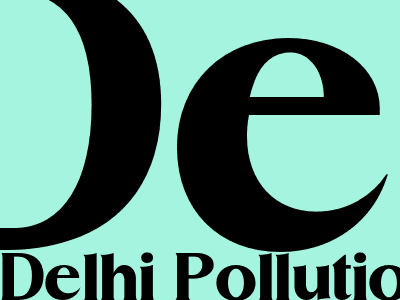
Delhi Pollution: Air Quality Deteriorates Further, Stringent Measures in Place
Air Quality Dips to 'Very Poor' Category
Delhi's air quality has witnessed a significant decline, slipping into the 'very poor' category on Saturday, according to the System of Air Quality and Weather Forecasting and Research (SAFAR).
The overall Air Quality Index (AQI) stood at 361, as per the Central Pollution Control Board (CPCB). Areas such as Anand Vihar, ITO, and Delhi University recorded 'severe' AQI levels, exceeding 400.
Stringent Measures Implemented
Odd-Even Scheme Reintroduced
In an effort to combat the worsening air quality, the Delhi government has reintroduced the odd-even scheme from Monday, November 14. Under this scheme, vehicles with odd and even number plates will be allowed on alternate days.
Construction Activities Restricted
Construction activities have been restricted to essential projects only. The government has banned the use of polluting fuels such as coal and wood in hotels, restaurants, and industries.
Vehicular Emission Checks
The Delhi Traffic Police has intensified vehicular emission checks to identify and penalize polluting vehicles. According to reports, over 1,000 challans were issued on Friday alone.
Health Concerns and Advisory
The deteriorating air quality poses severe health risks, particularly for the elderly, children, and those with respiratory conditions.
The government has advised residents to wear masks when stepping outdoors, avoid strenuous activities, and stay indoors as much as possible. Health experts recommend using air purifiers at home and avoiding smoking.
Reasons for Air Pollution
Stubble Burning
Stubble burning in neighboring states of Punjab and Haryana is a major contributor to Delhi's air pollution during the winter months, releasing harmful pollutants into the atmosphere.
Vehicular Emissions
Delhi's high traffic density and reliance on personal vehicles significantly contribute to air pollution. Incomplete combustion and tailpipe emissions release pollutants such as carbon monoxide, nitrogen oxides, and particulate matter.
Industrial Emissions
Industrial activities, such as power plants and factories, release harmful gases and particulate matter, affecting air quality.
Conclusion
Delhi's worsening air quality demands immediate action and collaboration from all stakeholders. While stringent measures are being implemented, reducing stubble burning and promoting cleaner fuel sources are crucial for long-term improvement.
Citizens can contribute by opting for public transport, carpooling, and using cleaner energy options at home. Staying informed about air quality levels and taking necessary precautions is essential to safeguard public health.